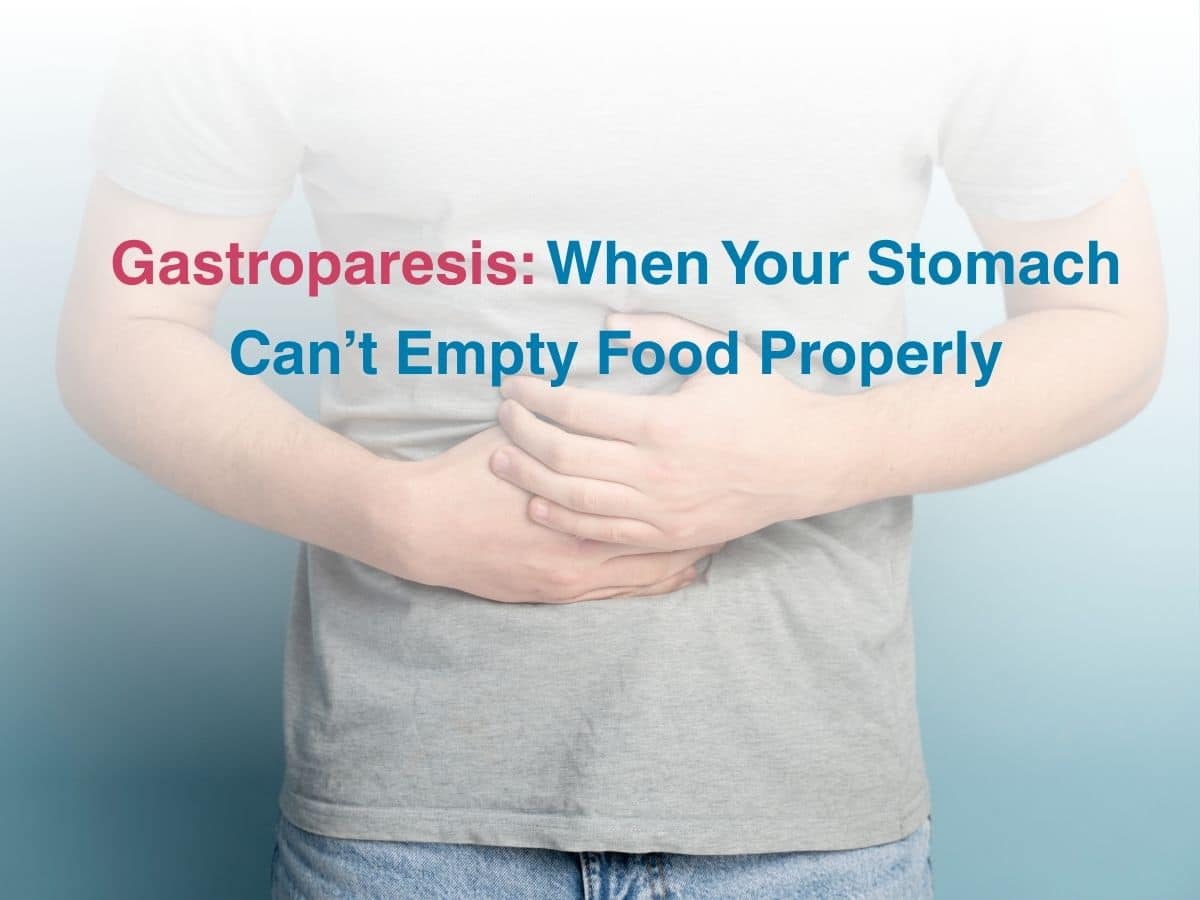
Gastroparesis: When Your Stomach Can’t Empty Food Properly
 The term ‘paresis’ is used by doctors to indicate that there is some muscle weakness which can be attributed to an underlying cause like a nerve disorder, for example. By extension, ‘gastroparesis’ means the muscles in the stomach are weak and don’t work properly. It is a functional disorder of the gut and needs specialised treatment. Gastroparesis affects a significant part of the Indian population and is more prevalent in diabetic individuals.
The term ‘paresis’ is used by doctors to indicate that there is some muscle weakness which can be attributed to an underlying cause like a nerve disorder, for example. By extension, ‘gastroparesis’ means the muscles in the stomach are weak and don’t work properly. It is a functional disorder of the gut and needs specialised treatment. Gastroparesis affects a significant part of the Indian population and is more prevalent in diabetic individuals.
What Is Gastroparesis?
Gastroparesis is a condition where food stays in your stomach for a longer time than necessary, as it is not being pushed into the intestine for further breakdown. When the peristaltic movements of the stomach get affected (regular muscular contractions needed to digest and push food to the next compartment), you can expect to deal with unwanted long term side effects. One of the main issues which can happen is- some food is left over in the stomach and this keeps happening in each cycle. Eventually, the non-digested food material turns into a hardened mass called a bezoar, which will need to be removed.
Causes Of Delayed Stomach Emptying-
The main cause for gastroparesis is nerve damage- as nerves that supply signals from the brain to the stomach muscles are not working properly. But, for some individuals, the nerves may be fine but the gastric muscles themselves may be problematic and cannot contract normally. This means food cannot leave the stomach (a process called gastric emptying) and indigestion and associated symptoms are common.
Gastroparesis is also common due to underlying chronic conditions like diabetes, if you have had some surgery where the vagus nerve may have gotten injured or if you have had a viral infection, have an autoimmune condition or use certain medications where gastroparesis is a side effect. Some people also get gastroparesis if they have connective tissue disease, neurological and endocrine disease or even cystic fibrosis, though this is rare. Other cases may be completely idiopathic, as doctors cannot pinpoint the exact reason for gastroparesis.
Symptoms Of Gastroparesis-
Let us look at some of the more common symptoms of this condition- bloating, indigestion, pain in the upper parts of the abdomen, nausea, regurgitation of undigested food, acid reflux or heartburn, constipation and blood sugar spikes or crashes, respectively can occur in affected individuals.
Diagnosis Of Gastroparesis (Gastric Emptying Study)-
Diagnosis of this condition is done by using imaging- like upper GI endoscopy, an upper GI series, an ultrasound or MRI/CT scans. But, if these turn out to be normal, then a gastric emptying test is done- where you will be given food that is laced with a known quantity of radioactive material. The stomach will then be scanned at regular intervals, to see how food is moving along. A gastric mobility breath test may also be recommended in some cases, while a colon transit study will be done using a swallowed pill, which is visible in an X-ray scan, which will be done every few hours, so doctors can check how much the pill has moved.
Treatment Options For Gastroparesis –
Medications that slow or improve stomach motility may be prescribed – metoclopramide is the only one available at present. Antibiotics and anti-diabetic drugs can also be given. Drugs to help you manage constipation will be used at times. Surgery may also be done in severe cases- like a Gastric-POEM to help your sphincter muscles work better, a gastric bypass (a part of your stomach is surgically removed and the remaining part is connected to the small intestine directly). If you have a bezoar in your stomach, then it will be removed carefully, using a laparotomy or a laparoscopic approach.
Conclusion
Lifestyle changes for better digestion include eating smaller meals, more often during the day. You will also need to have a specific diet which is fat and fibre-low. You should get some exercise everyday, as it can improve motility and digestion. Do not drink or smoke, as it can interfere with gastric emptying. Talk to your doctor about any other concerns you may have. It is important to get diagnosed soon as gastroparesis can be chronic and affect your quality of life severely. Researchers are working on finding better treatment approaches, so patient outcomes can get better in the future.






